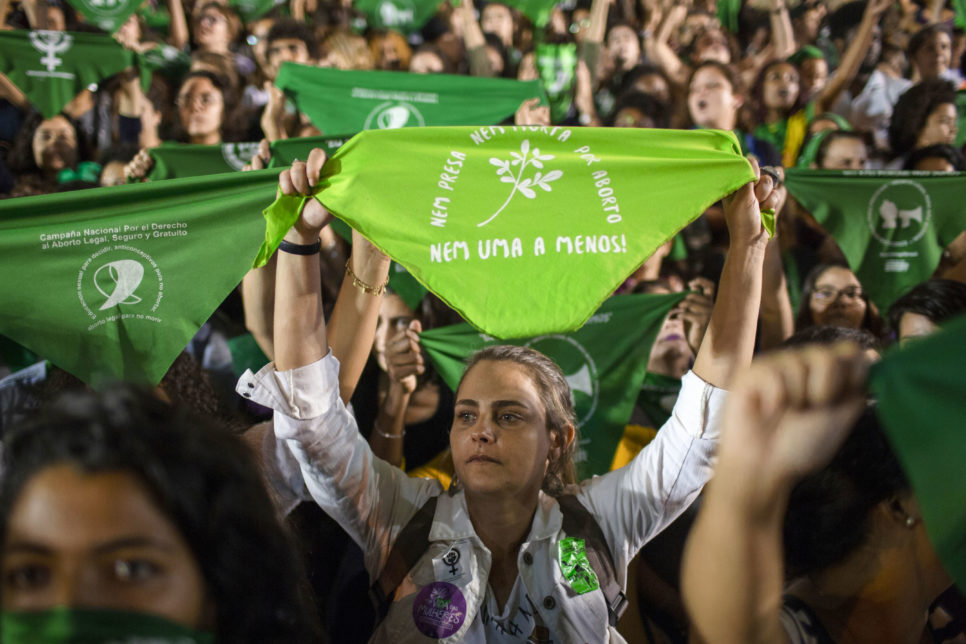When it was written, the Federal Constitution of 1988 embraced a legal thesis known as indigenato, which recognizes the inherent right of indigenous peoples to use their ancestral lands, which far predate the Brazilian State. This position is summarized in article 231 of the Constitution, which establishes the rights of these peoples “to the lands that they have traditionally occupied” and also obligates the State to demarcate and protect them.
Despite being clear and decisive, this passage from the Constitution has been questioned increasingly more frequently by people, government agencies and institutions interested in exploring indigenous lands and reducing the scope of this protection.
They base their arguments on a legal opinion drafted by the Attorney General’s Office in 2017 in defense of a “time frame” for determining whether land traditionally belongs to a given indigenous tribe. This “frame” is the date of the promulgation of the Federal Constitution. In other words, the defenders of this thesis argue that indigenous peoples should only be entitled to claim ownership of the land they were occupying in October 1988.
Read more
This debate made it all the way to the Supreme Court in the form of a Special Appeal (RE 1017365) involving the Xokleng tribe and Fatma (Environment Foundation of Santa Catarina), which wants to repossess an Indigenous Land that has already been identified and that is currently being used by the Guarani and Kaingang tribes.
The Court determined that the outcome of this case would carry a “general repercussion”, i.e. it would set a precedent for all disputes involving indigenous lands in the country.
Conectas, the only non-indigenous organization admitted as an amicus curiae in the case, believes that the “time frame” thesis violates the constitutional right of indigenous peoples and conflicts with various obligations assumed by Brazil in international treaties on the topic – namely the United Nations Declaration on the Rights of Indigenous Peoples, the International Covenant on Civil and Political Rights, the International Covenant on Economic, Social and Cultural Rights and the International Convention on the Elimination of All Forms of Racial Discrimination.
In the briefs it submitted to the Supreme Court, the organization recalls that the Inter-American Court of Human Rights has already issued several statements on the matter, always asserting that the decision on which lands are traditionally occupied must be made on a case-by-case basis by determining the relationship between the indigenous community and the land it is claiming, and not by setting an arbitrary time frame.
In other words, as far as the Inter-American Court is concerned, if there is still a bond or relationship with the land (whether material or spiritual), the right remains intact, no matter how much time has passed.
In its briefs, Conectas also recalls that indigenous peoples have historically been subjected to violence and plunder and, as such, using an arbitrary time frame is to neglect the displacements that occurred before the Constitution of 1988.
Finally, the organization states that the use of the “time frame” thesis would worsen the violence and vulnerabilities suffered by indigenous peoples in Brazil and recalls that their right to land is directly linked to their existence, their physical and cultural reproduction, their physical and mental integrity and their cultural identity.
In a preliminary ruling in February 2020, the rapporteur of the case at the time, Justice Edson Fachin, ordered the suspension of the legal opinion of the Attorney General’s Office. The case is now waiting to be heard by the full bench of the Supreme Court.
Technical information
- Case: RE-1017365
- Court: Supreme Court
- Status: Awaiting inclusion on the schedule of cases to be heard by the Court
- Procedure:
- 12/14/16: Initial petition
- 2/25/19: Recognition of the “general repercussion” of the case
- 7/29/20: Request for admission as amicus curiae
- 06/11/20: Trial starts in the virtual plenary but it is interrupted by Minister Alexandre de Moraes’s request
- 06/03/2021: Trial is scheduled, but it is not voted due to lack of time. The trial has been rescheduled for August 25







